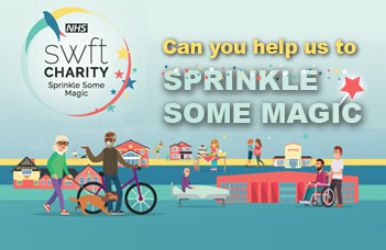FAQ's
Who can be referred?
- Children aged 0-18, or 19 if they attend a specialist education setting or are eligible for child benefit.
- Children in permanent residence within Warwickshire and/or registered with a Warwickshire General Practitioner (GP)
- Children whose Parents/Carers pay council tax to Warwickshire where main reason for referral relates to home adaptations and/or equipment.
- Children not resident within Warwickshire but attending a Warwickshire School where main reason for referral relates to difficulties accessing the curriculum or school environment.
- Children that present with functional difficulties which affect their development, performance and independence in daily activities relating to self-care, home/school, play/leisure activities
- Present with difficulties accessing home and school environments and/or facilities within those environments which may require an assessment for equipment or adaptations.
Who can refer?
- Parents
- GPs
- Consultants and Community Paediatrician
- Healthcare professional
- Schools
- Psychology services
- Other health, education or social care professionals
How do I refer?
Referral forms can be downloaded from the 'Making a referral' tab.
What difficulties do you provide help with?
Assessment will be tailored to identify your child's difficulties which may include:
- Functional difficulties such as dressing, eating, toileting
- Sensory Processing Difficulties impacting on function
- Environmental adaptations.
- School skills such as pencil and scissor skills
- Play skills
- Fine motor skills and gross motor function
- Upper limb assessment & splinting
- Equipment needs, including specialist seating and moving and handling equipment
What can’t you help with?
- Overcrowding at home
- Leg splints/AFO’s
- Helmets
- Car seats and harnesses
- Difficulties only related to
- educational achievement
- Emotional or behavioural
- difficulties relating to Mental Health and emotional needs.
- Specialist Sensory Integration
- TM assessment Please see (add hyperlink to SIN, RCOT)
- Specialist pushchairs or wheelchair -please contact Warwickshire Wheelchair Services
What treatment interventions & support may
children, young people and families get?
We use a holistic approach to treatment interventions, involving the child/young person, their families and other health, social care and education professionals who are involved in their care.
Depending on your child’s assessed needs, treatment intervention & support may include:
- Inviting Parents and/or school staff to attend one of our workshops
- Providing individualised therapy programmes and working with parents and school staff to implement these in the child’s school and home settings
- Assessment and recommendation of specialist equipment to support functional skills, learning and play
- Involvement in educational and transition planning
- Signposting and/or referring to other relevant services
- Collaborative working with other health, education and social care professionals as part of a Multi-Disciplinary Team.
How long will my child have to wait?
Whilst we aim to see every child in a timely manner, we do have a waiting list. If your child’s referral meets our service criteria, they will be placed on a waiting list to be seen or allocated to an Occupational Therapist and is determined by level of risk.
Where might my child be assessed?
Where the initial assessment takes place is determined by what difficulties are identified in their referral. The initial assessment may take place through a telephone assessment. If Face to Face assessment is indicated, the most appropriate setting for the assessment to take place will be offered. This may be within a clinic, nursery/school, and/or the child’s home.
If further Occupational Therapy is required, the Occupational Therapist will talk with you about the best place to see your child.
How many times will my child be seen by an OT?
This will vary depending on their needs. Some children have mild difficulties whilst other children may have longer term needs.
Children are discharged from our service when the Therapist feels confident that the child is developing skills in line with his/her general development, and that the recommended strategies to support his/her needs have been shared with family and education setting.
The Therapist will discuss the discharge process with parents and support staff and explain how they can access support in the future if this is needed.
How will Occupational Therapy benefit my child?
There are numerous benefits of Occupational Therapy for children, these include:
- Greater independence and/or safety when carrying out daily tasks
- Increased likelihood they will reach their full potential
- Less frustration when completing day-to-day occupations i.e. eating, dressing, playing, schoolwork
- Increased self-esteem, confidence and participation in activities
- Improved social relationships
- Reduced anxiety for child and/or parents
- Better understanding and awareness of functional difficulties within the home and/or school environments, resulting in improved learning
What happens if my child misses or cannot attend an appointment?
There are many children who are waiting to be seen by Occupational Therapy, so it is very important that we make the best use of the appointments we have available.
If your child cannot attend their appointment, we urge you to ring the office number on the appointment letter or on this website to cancel and rearrange the appointment. If your child is not brought without contact us to cancel the appointment, your child may be discharged.
Why has my child been discharged?
Your child will be discharged when they no longer need our service. Reasons for discharge include:
- Their agreed goals have been achieved
- Occupational Therapy will no longer impact on future skill progression
- Those involved with the child have the knowledge and skills to carry out strategies and support the child’s occupations
- The child is not able to engage with Therapy
- The child is being transferred to a specialist and/or other service(s)
- The child has not been brought to appointments
- The child has moved out of Warwickshire
Children can be re-referred in the future should their needs change or new difficulties arise.
My child is transitioning into adulthood, what support will they get?
As your child approaches 18 (or 19 if they attend a education setting), we will support them by planning their transition into adulthood by ensuring that referrals to relevant adult services are made in advance.
My child has been referred for an Education, Health and Care Plan (EHCP) needs assessment, will they be assessed by an OT?
If your child has previously been assessed by children’s occupational therapy service, the therapist will contribute from clinical records or a further assessment may be arranged.
If your child has never been known to the occupational therapy service, a request for an assessment will be screened and prioritised as per our clinical criteria. See what our service offers (link).
English is not my first language; Can I have an interpreter?
If English is not your first language and you think that you may not be able to communicate well with our staff, please let us know as soon as possible so we can arrange a professional interpreter to be present at your child’s appointment(s).
The person making the referral to our service can also request an interpreter when completing our referral form.
« Return to Occupational therapy






